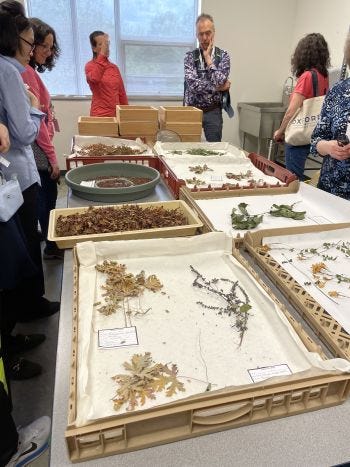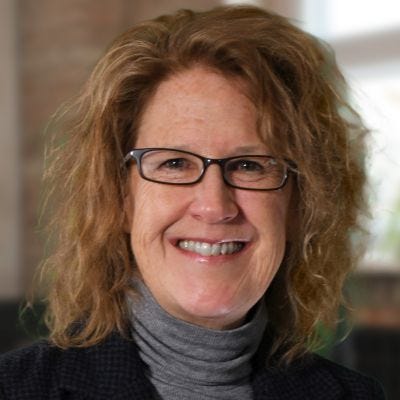ICSB: Building bridges for a successful botanical industry
Karen Raterman, associate director of content marketing with Informa Markets/SupplySide, reflects on the magic of the 22nd International Conference on the Science of Botanicals.
April 26, 2024

The annual gathering of botanical researchers, scientists, regulators and stakeholders convened in Oxford, Mississippi for the 22nd time in mid-April. If it is a conference that you have never taken the time to attend, you might want to add it to your 2025 schedule. I’ll tell you why.
For me, the International Conference on the Science of Botanicals (ICSB) harkens back to earlier industry days, when the Dietary Supplement Health and Education Act of 1994 (DSHEA) was brand new, the industry was smaller, and there was a shared sense of purpose wherever industry stakeholders gathered.
The focus continues to be solely on botanicals, which brings in top experts from around the world to discuss plants and the medicines and foods we make from them. Many industry veterans come back year after year, while a whole crop of newcomers also attend — some of whom are the brain trust in a next generation of botanical leaders.
But they also come to ICSB because it’s just plain fun. As returning speaker Marilyn Huestis, a cannabis researcher at Thomas Jefferson University, put it, ICSB is a “thought provoking conference, with wonderful people and I am pleased as punch to join again.” That pretty much says it all.
There is one important difference that makes ICSB special. A joint venture between the National Center for Natural Products Research (NCNPR) at the University of Mississippi School of Pharmacy and the Center for Food Safety and Applied Nutrition (CFSAN) at the U.S. Food and Drug Administration, the conference is unique for the number and engagement of regulators. And this year, there was a clear message: “We are here to help. Call us early. Call us often.”
This sense of community and camaraderie between industry and regulators is not something I recall in the early days of DSHEA.
Sharing a botanical cocktail (made by long-time attendee Sue McKinney of Altin Biosciences) with FDA analytical chemist Betsy Yakes was refreshing. Yakes’ presentation earlier that day highlighted some of the changes that might make an old ingredient new again. She had a great time with the material, quizzing the audience with mock products and companies run by her family members, so I knew she was someone with whom I could connect.
I also got the chance for a chat with Helene Langevin, M.D., director for the National Center for Complementary and Integrative Health (NCCIH), a keynote speaker on the second day of the conference. We had a conversation about the importance of NCCIH’s growing focus on nutrition and its importance to whole person health. Langevin said she was at the conference because she recognized the relevance of industry, practitioners and scientists all working together to think more broadly about this continuum, drilling down to look at health through an environmental and even a social lens.
Such interactions were unexpected for me. So much so, I asked NCNPR director, Ikhlas Khan, Ph.D., for his thoughts on why ICSB is so conducive to great networking, especially between regulators and industry. He explained this interaction is a hallmark of ICSB given the cooperative agreement with CFSAN. Khan also explained that in other settings, it might be us and them, whereas at ICSB, “it is all just us.”
Certainly, a shared love of plants is the common ground. It also doesn’t hurt that ICSB offers several ice-breaking networking events. Who doesn’t love a catfish fry, a corn hole competition, and an evening of bowling and taking silly pictures in a photo booth?
Whatever the magic is, ICSB is worth your time and a great recipe for an industry that works through its issues, evolves and sets the foundation for a thriving business in the future.

ICSB attendees, including NBJ’s Bill Giebler (center), tour the Maynard W. Quimby Medicinal Plant Garden. The mission of the garden is to maintain a diverse, accurately identified medicinally important plant collection to support teaching and research at the University of Mississippi.
Read more about:
SupplySide partner updatesAbout the Author
You May Also Like

